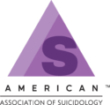Update for Our Members
Dear AAS Members,
We want to express our gratitude for your exceptional patience during this transition period, and would like to share more progress with you here. We’ve heard your concerns, suggestions, and support, and we recognize that your engagement in this process reflects your deep reverence and respect for both the association and its guiding mission. During this time, many of you have stated that AAS is your professional home, the place where you’ve advanced your careers, met personal friends, and most importantly, taken steps to better understand and prevent suicide. This means more to us than we can express and we want to reaffirm our mission has not changed. AAS continues to support an improved understanding of suicide, along with suicide prevention and postvention, and will continue to hold space for every person affected by suicide, those researching its impact, those who help folks living with suicidal experiences, and anyone else who might benefit from the connection and expertise held by our membership.
One of the outcomes of recent changes has been a greatly renewed interest by our members in how the association carries out its work at the leadership level. Increased member input on governance has demonstrated that AAS members care intensely about procedures previously thought mundane, and in the pursuit of increased transparency we’d like to explain more about what we’re currently doing to diversify and strengthen organizational leadership.
Our bylaws, which we are legally and duty-bound to follow, outline how we should move forward. We have also consulted with several experts for advice on the most sound, legally correct, bylaw-compatible best practices to apply to the mandated next steps. These steps include filling vacant board seats, voting to select an interim Executive Director, and initiating the process for a special election for President-Elect. After repopulation of the board, we will return to standard board business, including governance, financial oversight, supporting year-round suicide prevention iniatives, and organizing our dynamic annual conference.
We have been advised that our best way forward is to fill vacancies in division chairs and the Secretary position for the remainder of terms. The current board members have nominated and selected qualified board members to fill and complete the terms of Secretary, Loss Survivor Division, Student Division, Public Health and Prevention Division, and Crisis Services Division chairs. We are proud to have highly qualified association members step forward to serve our community and we greatly appreciate the enthusiastic response we’ve received from the folks offering to serve in these roles. The full board will then review the recommendation of the Interim Selection Committee to engage an interim Executive Director (ED). The interim ED will start work as quickly as possible to support ongoing organizational operations. We expect their work will expand to membership trust and reconciliation in short order. This person will also fill a role of aligning the Board of Directors with our Central Office, while further opening communications with you, our members.
Once an interim Executive Director is selected, the board will start the process to create a special election for members to choose a President-Elect. This process, when done in an ethical and legally compliant manner, will take some time. The Chair, full board, and ED, along with Central Office, will work as quickly as possible to ensure appropriate procedures and policies are followed. Expect a Call for Nominations in the coming weeks that will outline the entire special election process.
Concurrently with the special election, the Conference Committee will continue planning for the 2022 American Association of Suicidology Conference (AAS22) which will be held at the Hyatt Regency O’Hare in Chicago from April 22-2022.
Finally, we’ll be kicking off the process for regular board elections. The Student and Crisis Division Chairs are on schedule as well as the regular AAS Presidential election. This process will operate as it has the last two election cycles, in an open, ethical, and secure format in coordination with a qualified and certified third-party vendor providing electronic ballots.
We are aware that some of our members would prefer a process that differs from the bylaws and will look to revise the bylaws to be more compatible with today’s AAS soon; the reality is that we cannot legally do that until the items mentioned above are completed.
Expect no interruptions in regular programming as the Central Office staff continues to operate smoothly and efficiently, including several planned events for Suicide Prevention Month. Also, because we’ve heard your calls for increased transparency, you’ll see more regular updates as we progress. Please reach out with any questions to leadership@suicidology.org and your message will be forwarded to the appropriate person. Our all-volunteer Board of Directors comprises professionals from many different roles and positions and they will return requests as soon as they’re able to. Thank you again for your feedback and patience. You will be hearing more from us soon.
Sincerely,
AAS Board of Directors
